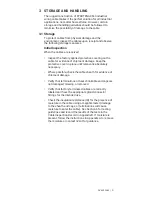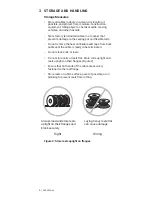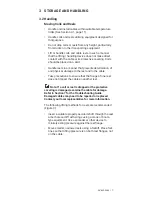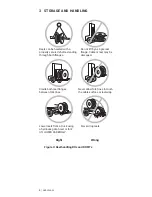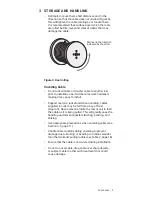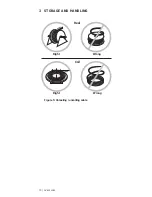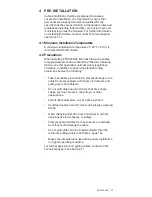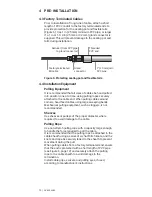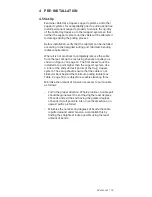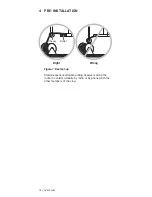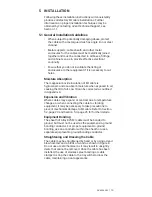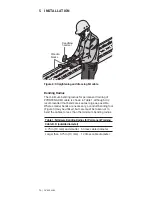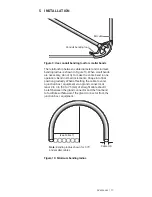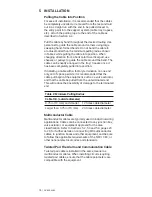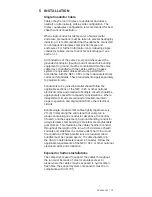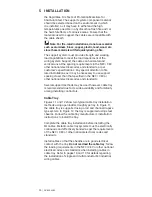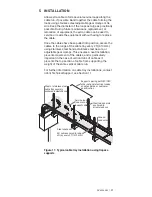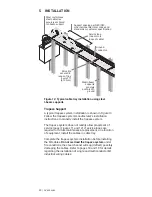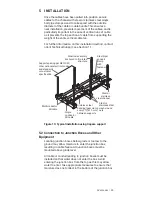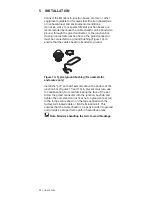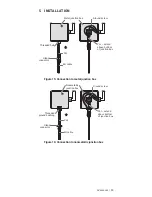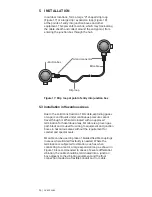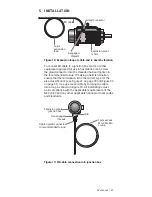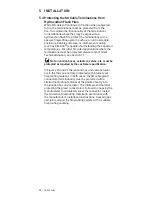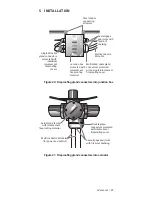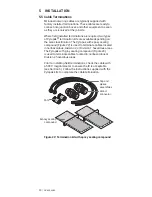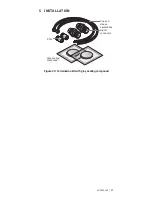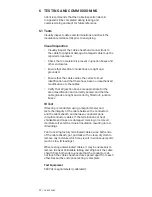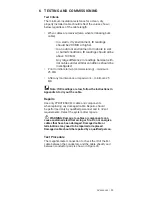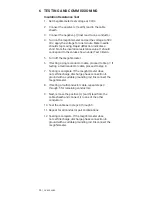
5 INSTALLATION
Single Conductor Cable
Cables may be run in triplex or quadruplex (includes a
neutral), or alternatively, side-by-side configuration. The
triplex / quadruplex configuration is recommended for best
sheath current cancellation.
When single conductor cables enter a ferrous metal
enclosure, precautions must be taken to prevent heating by
induction. It is recommended that the cables be connected
to nonmagnetic stainless steel junction boxes and
enclosures. For further information on terminating single
conductor cables, contact nVent Technical Support, see
Section 1.1.
All conductors of the same circuit, and where used, the
grounded conductor (neutral) and all conductors bonding
equipment to ground, must be contained within the same
cable tray or bundled with the cables within a trapeze
system or equivalent, unless otherwise permitted in
accordance with the NEC / CEC or other national electrical
codes and standards. These requirements apply separately
to parallel circuits.
Conductors to be joined in parallel should follow the
applicable sections of the NEC / CEC or other national
electrical codes and standards. Multiple circuits should be
appropriately spaced for ampacity considerations. Where
independent circuits are required or desired, maintain
proper separation and segregation from other electrical
circuits.
Bundle single conductor MI cables tightly together every
2 ft (610 mm) along the entire length of cable run, in
groups containing one conductor per phase, the neutral
(if used), and the equipment-to-ground bonding conductor
using stainless steel banding or stainless steel adjustable
gear clamps. This maintains the cable sheaths in contact
throughout the length of the run, which minimizes sheath
currents and stabilizes the cables under short circuit and
fire conditions. Where parallel runs are required, cable
bundles must be spaced apart 2.15 cable diameters in
the USA (2 cable diameters apart in Canada). Follow the
applicable requirements of the NEC / CEC, or other national
electrical codes and standards.
Exposed or Surface Installations
The components used to support the cables throughout
the run must be made of steel or stainless steel. In
areas where the cables may be exposed to hydrocarbon
flash fires, the support system components must be in
compliance with UL1709,
nVent.com | 19
Summary of Contents for pyrotenax Alloy 825
Page 1: ...MI Cable Industrial Wiring Installation Manual For Alloy 825 Sheath Cables ...
Page 4: ...iv nVent com ...
Page 46: ...42 nVent com ...
Page 47: ...nVent com 43 ...

